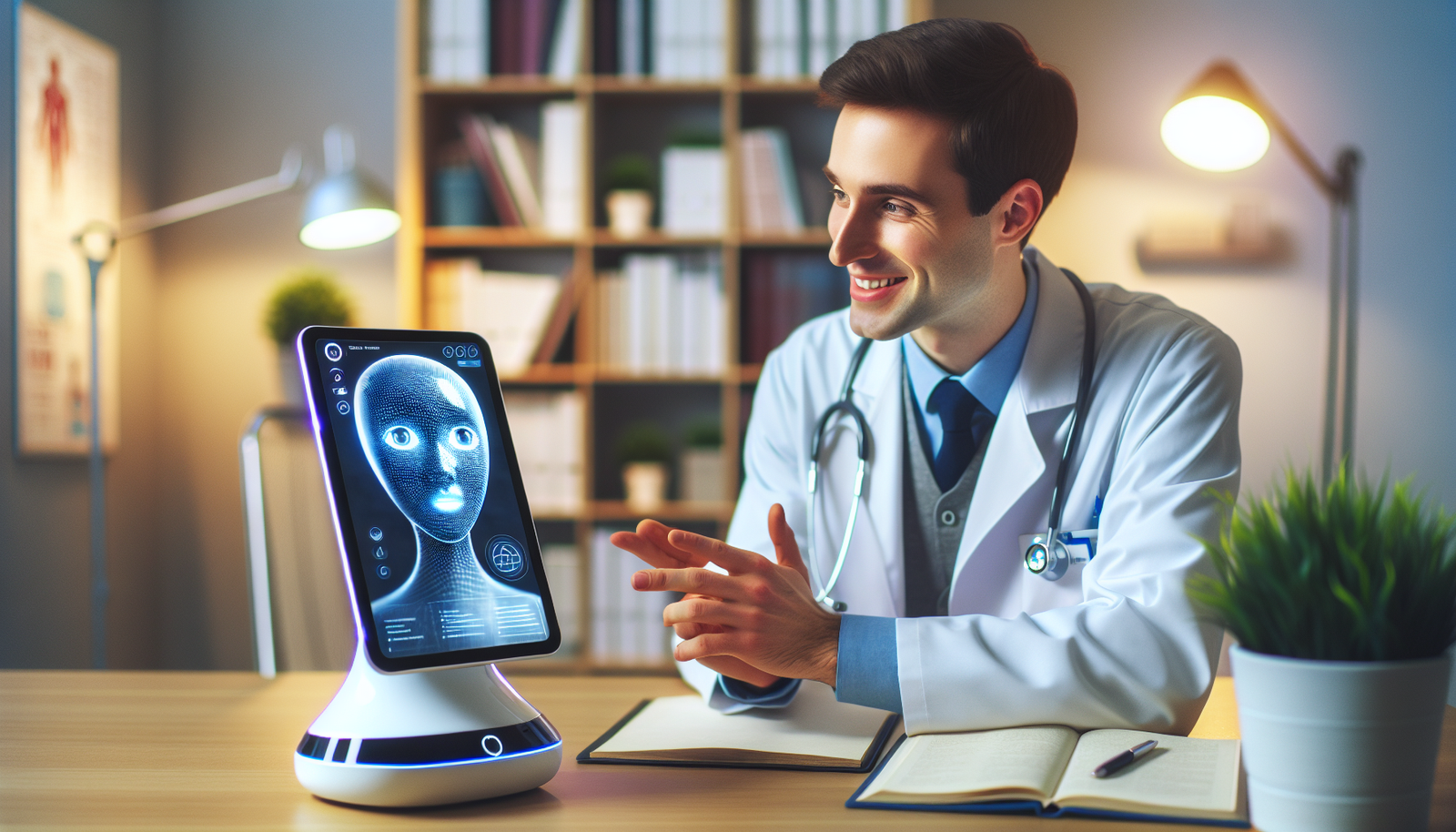Artificial intelligence is revolutionizing the medical landscape by transforming the interactions between doctors and patients. The integration of intelligent assistants in the healthcare sector poses a significant challenge: to improve the quality of care while optimizing the time of medical staff. These innovative technologies offer fascinating promises, such as the automation of administrative tasks and informed clinical decision-making.
Intelligent virtual assistants allow doctors to focus more on the human relationship with their patients. Thanks to AI, documenting consultations becomes more efficient, thereby reducing the risk of errors. *The prospect of personalized patient follow-up* is also emerging, making care more tailored to individual needs.
AI-Based Intelligent Assistants
The digital transformation of the medical sector is accelerating thanks to the adoption of intelligent assistants based on artificial intelligence. These technologies aim to optimize the relationship between the doctor and the patient while improving the efficiency of care.
A Practical Tool for Appointment Scheduling
Doctolib has recently launched a virtual assistant capable of conversing with patients over the phone to facilitate appointment scheduling. This initiative aims to reduce the time spent on administrative management, allowing the caregiver to focus on their medical role. The assistant, available from October 15, represents a significant advancement in the integration of AI into the care pathway.
The Clinical Decision Assistant
Beyond appointment scheduling, the clinical decision assistant positions itself as a major asset. With real-time access to health data, this tool helps doctors make informed decisions. By facilitating access to the right data at the right moment, the efficiency of care could be considerably increased.
Automated Note Taking
Another revolutionary development comes from the introduction of assistants capable of taking notes during consultations. Doctolib, in particular, offers a solution that automates this task, thereby lightening the cognitive load of practitioners. The drafting of summaries becomes faster and more accurate.
Diverse Applications of AI in Medicine
Artificial intelligence is exemplified in several medical fields. From surgical assistance to remote patient monitoring systems, AI opens up innovative perspectives. Intelligent prostheses and telemedicine devices are also concrete examples that demonstrate the impact of AI on modern medicine.
WHO and the S.A.R.A.H. Assistant
The S.A.R.A.H. (Smart AI Resource Assistant for Health) project, launched by the World Health Organization, incorporates these principles. This intelligent assistant uses AI resources to help healthcare professionals better manage their tasks. Its role is to provide relevant answers and support in the context of the care provided.
The Role of Chatbots
Chatbots, while perceived as interaction tools, must nevertheless be used with caution. They can simulate a conversation, but their ability to understand the nuances of human communication remains limited. Numerous studies highlight the limitations of chatbots in a medical context. For more information, read this article on chatbots.
The Doctor of the Future
The increasing use of AI in medicine is shaping the identity of the doctor of the future, who is becoming increasingly digital. The digitization of care, combined with advanced analytical tools, allows for the individualization of treatments and improves patient follow-up. These advancements promise a continuously evolving healthcare landscape.
Revolutionary Tools from Google
The recent presentation of three new AI tools by Google also demonstrates the innovation dynamics in this sector, offering potentially transformative solutions for healthcare professionals. To discover these tools, read this article on Google Cloud Next.
Towards a More Interactive Driving Experience
Technological advancements are not limited to healthcare. Companies like Microsoft are developing assistants for various sectors, including automotive. The integration of ChatGPT in DS cars enhances interaction with the driver. For more information, click here on ChatGPT.
The Future of Medicine
Researchers and doctors continue to evaluate the ramifications of AI in health. Ethical challenges, as well as the need for appropriate regulation, remain critical issues. The acquisition and use of health data raise important questions regarding privacy and consent. This underscores the importance of collective reflection on the future of these technologies.
Frequently Asked Questions
What is an AI-based intelligent assistant for doctors?
An intelligent assistant is an application that uses artificial intelligence to help doctors in their daily practice, notably by automating tasks such as appointment scheduling, note taking during consultations, and accessing relevant health data.
How can AI improve the efficiency of medical care?
Artificial intelligence allows for a reduction in time spent on administrative and repetitive tasks, enabling doctors to focus more on interactions with patients and the analysis of clinical data.
What are the benefits of using a virtual assistant during medical consultations?
A virtual assistant can take notes during the consultation, freeing up time for the doctor while ensuring that all relevant information is properly documented.
Does the use of AI-based assistants pose risks to patient data privacy?
While rigorous security protocols are implemented to protect patient data, it is essential that healthcare professionals are aware of privacy regulations when using these technologies.
What is the impact of AI on the doctor-patient relationship?
An intelligent assistant can enhance the relationship by allowing the doctor to spend more time with the patient while providing information and recommendations based on accurate and current data.
Can AI assistants completely replace doctors?
No, AI assistants do not replace doctors but help them by automating certain tasks and providing data analysis to facilitate clinical decision-making.
What technologies underpin the development of these intelligent assistants?
Intelligent assistants are based on technologies such as machine learning, natural language processing, and predictive analytics to interact effectively with users and manage health data.
How can doctors train to use these assistants?
Specific training and awareness sessions are often organized by software vendors or as part of continuing education programs to help doctors integrate these technologies into their practice.
Can intelligent assistants integrate electronic medical records?
Yes, many AI-based assistants are designed to integrate directly with electronic medical record systems, facilitating real-time access to necessary information for diagnosis and treatment.






